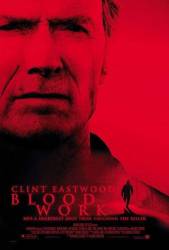
Question: I missed something. What was it that Clint Eastwood noticed that made him realize his friend was the killer?

Question: Was the doctor (the owner of the sailboat in the beginning) in on Laura's planned disappearance? Or was the bad weather just a coincidence and gave her the chance to escape? Just though it was weird because her husband commented that she only gets on a boat like once a year, so I don't know how she could have planned her escape so perfectly.
Chosen answer: No, the doctor was not in on her plan. She had her escape planned for a long time, but was waiting for the right time. The stormy weather on the boat provided the "perfect" time for her to put her plan into action.
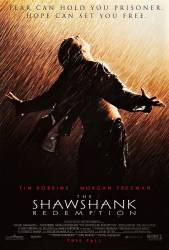
Question: Where would Andy have been able to get the $10 necessary to buy the rock hammer?
Chosen answer: In the original novella it is revealed that Andy smuggled $500 into the prison inside of his rectum. During an interview in 2004 Robbins incorrectly quoted the amount as being $100. The narration up until Red's release is provided as Red writes his account of the events while still in prison, and employs the same method to smuggle the story out. But since the issue of Andy smuggling in $500 into the prison isn't addressed in the movie, we should assume that he smuggled it in. In addition to this, the wardens scams are described as "near slave labor." From this we can assume that it is possible the inmates are getting paid (an incredibly small) wage. Perhaps Andy, with his financial knowledge, knows how to haggle, barter and stretch a dollar. One last (but not as likely) scenario is that Red allows some sort of lay by system to inmates.
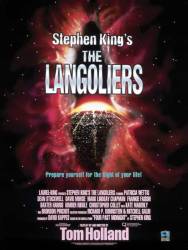
Question: Is there a reason why when they're in the past they can't catch up with the present, but when they land a little into the future, the present can catch up with them? Are they not moving along on their own timeline? And if not, why are they not left in that moment and stand there to see the present come and go without taking them?
Answer: Think of time as a gear with only one tooth, and think of them as a gear with only one notch. In the past, the one tooth has forever passed their notch and they'll never be carried along in the flow of time again. In the future, the tooth comes along, snags their notch, and they're back in the flow of time.
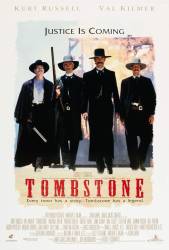
Question: What did Doc mean when he said "It's not revenge he's after. It's the reckoning"?
Chosen answer: A reckoning is like a judgment day, exacting retribution for one's actions. Doc was very well educated and had a very large vocabulary. He was correctly pointing out the subtle difference between revenge (to make Wyatt feel better about losing Morgan and about Virgil's crippling injury) and the fact that Wyatt was bringing about a judgment day (or reckoning) for each of the men who hurt his family.
Answer: I've spent a lot of time thinking about this very question, and here's what I've come up with. I think there are at least two differences between revenge and a reckoning. First, I think it has to do with the scale of the response to an offending action. Revenge, in my mind, is an eye for an eye, i.e, "You killed my brother and wounded another, so I will inflict the same action on your family (or group, gang, whatever). " A reckoning is less a measured response to an offending action and more of a full-scale punishment, i.e, "You killed my brother and wounded another, so I will now slaughter your entire family-including those who were not directly responsible for the offending action." Second, I think there is also a difference in motivation. Revenge tends to be a very personal response to something, whereas a reckoning tends to be more of a response fueled by a need for justice. In Wyatt's case, it was both. He was enraged by what happened to his family, but was also a lawman.
Thank you for this response! I've only seen Tombstone a million times and asked the same question every time. It's hard to separate the difference between the two but I believe you nailed it. Well done.
I'm thinking the opposite in terms. Revenge is "Reflexive" and is generally any means necessary (out of an abundance of pain or rage) to hurt the other party. "Revenge is a dish best served cold." If one is exacting justice there's no need to be cold hearted. Therefore, Reckoning is (to me) a fair balancing of the "scales" hence "an eye for an eye." Not only consequences of actions as it were but a corrective action to an incorrect circumstance. Just my understanding.
The problem with that theory is there is no difference in the end because the end result was the same...the killing. True reckoning could have only been achieved though the apprehension and punishment by trial and jury, anything other than that is simply revenge.
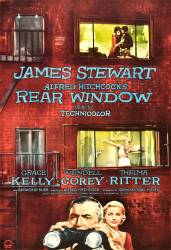
Question: What was in the hat box in the garden?

Question: Julia Roberts refers to the term "snow blowing" and states that she heard it described in a movie. Is this really a reference to a movie?
Answer: You can see the reference in Kevin Smith's first movie Clerks. Whether or not she's referencing that particular movie or not is debatable.
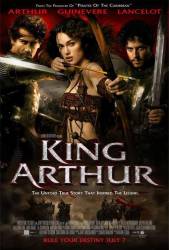
Question: What does the Saxon who rallies the troops actually yell? He yells it twice: once, after Cerdic meets with Arthur in front of the wall and gives the order to "prepare the men for battle", and then a second time when Cerdic gives the signal after the only survivor of the first "wave" comes back through the wall. (And I don't mean his cry of "battle formation.").
Answer: I don't think it's supposed to be German. Probably Old Saxon. Could be something like "slahten fiand" - slaughter enemy.
Answer: He yells 'Schlachtet den feind!' (In very, very bad "German") - 'slaughter the enemy!'. And his army seems to yell: "Schlachtung! Schlachtung! Schlachtung..." - "Slaughter! Slaughter! Slaughter..."
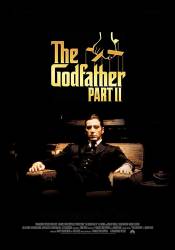
Question: In the flashback of Vito Corleone's return to Corleone, Sicily with his young family, his wife is shown holding a baby in a bonnet in several scenes. On the train he is talking to an older child and calling him Michael. Who is the baby?
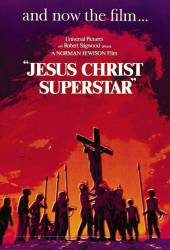
Question: At the very end when they show the sun setting over the hill, you can see something/someone moving across the screen, just under the ground. Is this done to symbolize something, or was it a sort of camera problem?
Answer: According to Ted Neeley and Norman Jewison on the DVD commentary, the shepherd walking across the frame in the final shot of the film was never intended to be there, and just happened across the shot as they were filming. Because of the significance of a shepherd in the teachings of Christ, Jewison and the crew were struck profoundly by the timing of this shepherd crossing the field, and kept the shot. They got a perfect sunset, as well as a subtle depiction of the resurrection.
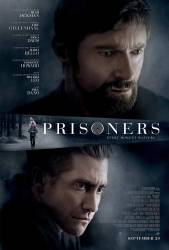
Question: What motivated Bob Taylor (an earlier abductee of the same perpetrators) to implicate himself in the current abductions by stealing the girls' clothing items and taking them to his home?
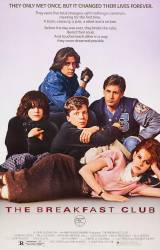
Question: I realise that a lot of US schools look similar but would this be the same school used in Ferris Bueller's Day Off (by the same director)?
Chosen answer: According to the IMDB, the answer is yes. Both movies used the same two high school locations: Glenbrook North High School, Northbrook, Illinois; and Maine North High School, Des Plaines, Illinois. The director, John Hughes, directed both movies and decided to use the same school. He also uses the name Shermer for the name of the high school in Breakfast Club and for the name of the suburb in which the Bueller's live.
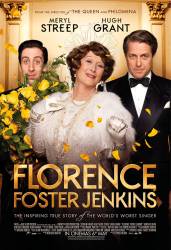
Question: Every time Florence would perform before a live audience, people would respond by either laughing at her or booing at her. With these kinds of reactions, how could Florence not realise that it was because nobody liked her singing and that they considered her a terrible singer?
Answer: People believe what they want to believe and can have an uncanny ability to filter out anything negative or unwanted. Eventually, she realised the truth.
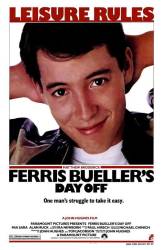
Question: When Sloane was told her grandmother was dead, did she know it was a hoax? And did Rooney figure it out?
Answer: Sloane knew it was a hoax. Ferris would not have done something like that without her knowing. Rooney pretty much had figured it out, but could never prove anything. Once he was discovered inside the Bueller house (illegally) by Ferris' sister, anything he did know he would have to keep to himself.
Sloane starts to put her jacket on the moment that she sees the school nurse walk into the classroom, suggesting that Sloane already knew she would be called out, and she smiles to her classmates.
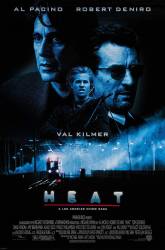
Question: In the scene right before the big bank heist, a detective comes into the situation room informing the team that a CI Hugh Benny had a tip about Neil McCauley looking at Far East National Bank. How the heck did Waingro (working for Benny and VanZandt) even know about this score? McCauley hadn't even discussed it with Kelso when Waingro took down the armored car.
Answer: Waingro helped Van Zandt track down Trejo. Waingro then tortured Trejo and threatened his family if he didn't give up McCauley. With his back to the wall, Trejo gave Waingro and Hugh Benny the details of the bank heist, but Waingro killed Trejo's family anyway and beat Trejo almost to death. Benny then gives the tip to the police on Van Zandt's order.
I wonder how Trejo was tracked, I don't remember his name being revealed during Waingro's time with the crew, or any other information.
Well, we never see the crew prior to their first heist. Trejo could have given Waingro his name during the planning of that heist.
Waingro met this crew only once. How would he know who Trejo is or where he lives? Right before the heist, Trejo is asked to mislead police away from the heist.

Question: How old is Edward?
Answer: It is never stated.
Answer: As the other response says, the number of years is never stated. Physically, I think he is supposed to look about twenty years old. Bill wants him to start a proper business. None of the adults seem to think that he should be in school.
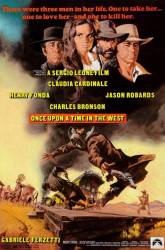
Question: In the scene where Cheyenne visits Jill at the McBain's residence for the first time, he asks her whether she knows something about a man with a harmonica, although the three of them (Cheyenne, Harmonica and Jill) met earlier in the movie when Cheyenne tells Harmonica to "watch those false notes." Why doesn't Cheyenne just ask her for the man whom she probably still remembers from this event?
Answer: The movie was filmed at multiple locations in Spain and Italy, and also in Utah. Chances are they filmed out of sequence and made minor changes to the script later in the movie. There are many things left unclear in the movie, for example the same scene at the cantina/store, just after Cheyenne's crew shows up, he refers to Harmonica by his name when no-one said his name up until that point.
Answer: He meant what does she know about him personally. What's his real name, where does he come from and why is he so interested in everything.
Then he should have asked "do you know something about THE man with THE harmonica?" instead of "do you know something about A man going around playing A harmonica?" (time stamp 01:05:25 for the restored version) or am I missing something? He already knows that she has seen him because he was there so he could just ask "do you know something about the guy with the harmonica we met at the bar earlier?" I just don't understand why Cheyenne is using an indefinite article because he and Jill both know who he is referring to.
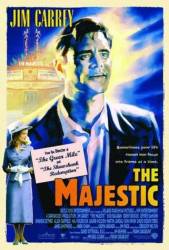
Question: Why didn't Peter retaliate against Bob for punching him and letting the town know what a jerk he is?
Answer: Two possible reasons. 1. Hitting him back and telling everybody about Bob being a complete jerk would make him no better then Bob. 2. Bob actually knew the real Luke and if Peter had hit him, Bob could retaliate by telling everybody the truth.
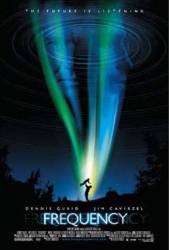
Question: Why did John's house suddenly alter so drastically when Jack's hand was blown off in the past? Did this one event somehow turn John into a better interior decorator?
Answer: Because the house is no longer John's. In this universe, his parents still live there.
Or he lives there and his wife redecorated.
I always took the scene at the end with Julia and Frank getting in a packed car with an older looking Elvis as them moving and leaving the house for John. And as I said above John's wife must have moved in and decorated.
Answer: The house changed because John's life changed, with both his parents alive to nurture and guide him, he became a different person. Different lifestyle and attitudes.
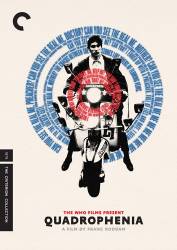
Chosen answer: When looking for clues to the identity of the killer, he comes across a code with the numbers, 903 472 568. He quickly realizes that Noone is the killer because in the code there is "No one".